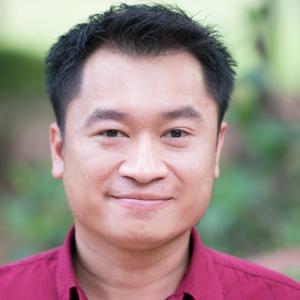Training on management and use of dietary data in Lao PDR
05 August 2021
Vientiane, Lao PDR, 5 August 2021 - The Lao Tropical and Public Health Institute (Lao-TPHI), Ministry of Health, in collaboration with the Food and Agriculture Organization of the United Nations (FAO), organized a training on the management and use of dietary data in Lao PDR between the 13 to 29 July 2021. This important training is an activity under the FAO’s Technical Cooperation Programme to develop capacities at country level to produce dietary data to support evidence-based policy making. A total of 25 participants joined this training, including representatives from related organizations within the Ministry of Health such as the Lao Tropical and Public Health Institute (Lao-TPHI), Nutrition Center, Department of Hygiene and Health Promotion, and the University of Health Sciences. The training was led by the Nutrition Assessment team of the Food and Nutrition Division in FAO Headquarters in Rome, and included sessions delivered by specialists in nutrition, food safety and policy.
FAO and WHO have been developing a global database of Individual Quantitative Food Consumption Data under a joint initiative called FAO/WHO Global Individual Food consumption data Tool (FAO/WHO GIFT), accessible online, http://www.fao.org/gift-individual-food-consumption/inventory-of-survey…). The tool is tailored to meet the needs of policy makers and enables informed decisions by answering the question: “What do people eat?” FAO/WHO GIFT serves to disseminate existing data about what people eat and drink in easy-to-understand age and sex-disaggregated indicators of food consumption and nutrition for non-specialized users, as well as to make full micro datasets available for advanced users who wish to analyze the data themselves.
In many countries around the world, one of the main obstacles towards a healthy diet for all is the insufficiency of available and accessible data on what people eat and drink to support effective evidence-based policies and programmes. In Lao PDR, the Lao TPHI implemented the National food consumption survey between 2016 and 2017. This survey collected information about what people eat and drink using a method known as the 24-hour dietary recall. The survey population covered three regions of the country, representing three major agro-ecological zones in the country. A total of 2016 respondents between 0 and 89 years of age, both males and females, including pregnant and lactating women were included in the survey. The team at FAO delivering the training were also involved in providing technical support to the survey design and implementation as a part of its collaboration with WHO and the Codex Trust Fund project under which the survey was funded. This survey provides the most recent and most comprehensive data on food consumption for the population of Lao PDR. The complete set of food and nutrient intake data from the survey is available in the FAO/WHO GIFT platform.
The goal of this training was to support the country to make the best possible use of this data. At the closing session of the training on 29 July 2021, Mr. Nasar Hayat, FAO Representative to Lao PDR emphasized that “it is critical to ensure that the data is harmonized, disseminated, and utilized”. During this three-week training, the participants learned and discussed ways forward to maximize the use of data. Dr. Latsamy Siengsounthone, the Deputy Director General of Lao-TPHI shared the ideas for further use of this data discussed during the training: “It may be used for country-specific research, country briefs for policy, exposure assessment for food safety analysis, development of Food Based Dietary Guidelines and Food Composition Tables for Lao PDR, and further trainings”.
For further information, please contact:
Vilaylack Khounvisith
National Communication Consultant










